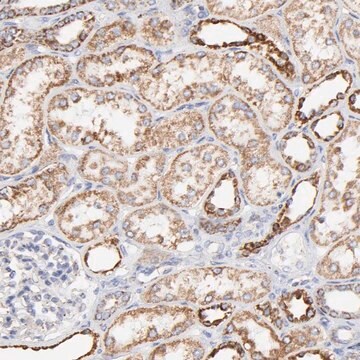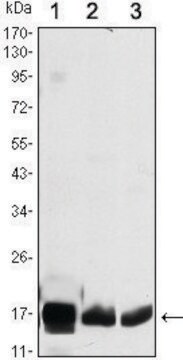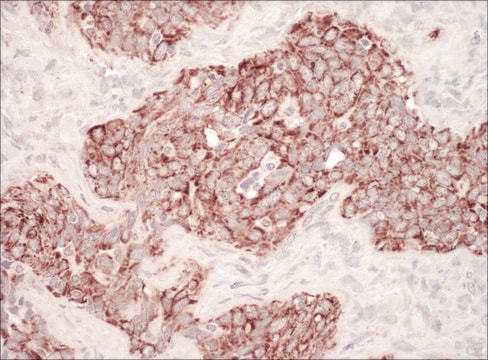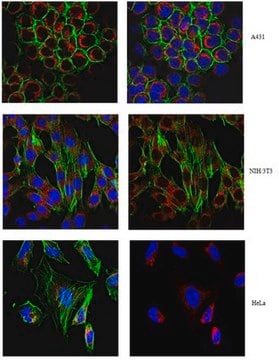AB10526
Anti-COX4 Antibody
from rabbit, purified by affinity chromatography
Synonym(s):
cytochrome c oxidase subunit IV isoform 1, cytochrome c oxidase subunit IV1, Cytochrome c oxidase polypeptide IV, cytochrome c oxidase subunit 4 isoform 1, mitochondrial
About This Item
WB
western blot: suitable
Recommended Products
biological source
rabbit
Quality Level
antibody form
affinity isolated antibody
antibody product type
primary antibodies
clone
polyclonal
purified by
affinity chromatography
species reactivity
human
packaging
antibody small pack of 25 μg
technique(s)
immunohistochemistry: suitable (paraffin)
western blot: suitable
NCBI accession no.
UniProt accession no.
shipped in
ambient
storage temp.
2-8°C
target post-translational modification
unmodified
Gene Information
human ... COX4I1(1327)
General description
Specificity
Immunogen
Application
Apoptosis & Cancer
Apoptosis - Additional
Quality
Western Blot Analysis: 0.1 µg/mL of this antibody detected COX4 in 10 µg of human fetal skeletal muscle tissue lysate.
Target description
A non-specific band may be observed at ~58 kDa
Physical form
Storage and Stability
Analysis Note
Human fetal skeletal muscle tissue lysate
Other Notes
Disclaimer
Not finding the right product?
Try our Product Selector Tool.
recommended
Certificates of Analysis (COA)
Search for Certificates of Analysis (COA) by entering the products Lot/Batch Number. Lot and Batch Numbers can be found on a product’s label following the words ‘Lot’ or ‘Batch’.
Already Own This Product?
Find documentation for the products that you have recently purchased in the Document Library.
Articles
Loading controls in western blotting application.
Our team of scientists has experience in all areas of research including Life Science, Material Science, Chemical Synthesis, Chromatography, Analytical and many others.
Contact Technical Service








